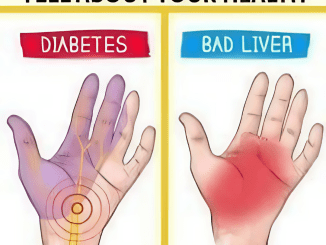Sleep is a cornerstone of good health, essential for both physical and mental well-being. Yet, in today’s fast-paced world, sleep often takes a backseat to work, social commitments, and endless screen time. But the consequences of not getting enough sleep are serious and far-reaching. Let’s explore the dangerous side effects of sleep deprivation and why prioritizing sleep should be on everyone’s agenda.
The Science of Sleep: Why Our Bodies Need Rest

Sleep isn’t just a passive activity where the body shuts down; it’s a dynamic process where critical functions like tissue repair, hormone regulation, and memory consolidation take place. The brain’s internal clock, controlled by the release of certain chemicals, governs the sleep-wake cycle, which impacts every major bodily system. When this cycle is disrupted by lack of sleep, the effects ripple through every aspect of health.
1. Impaired Cognitive Function and Focus
One of the first noticeable effects of sleep deprivation is a decline in cognitive function. Without enough sleep, attention, concentration, and problem-solving skills take a hit. Tasks that require quick thinking, such as driving or working on complex projects, become harder and more error-prone. Sleep-deprived individuals often struggle to process information, leading to reduced productivity and an increased risk of mistakes.
2. Increased Risk of Mental Health Issues
Lack of sleep doesn’t just make you tired; it can take a serious toll on your mental health. Chronic sleep deprivation is linked to mood disorders, including anxiety and depression. When you’re sleep-deprived, emotional regulation becomes difficult, making you more prone to mood swings, irritability, and feelings of sadness. Over time, sleep loss can even exacerbate existing mental health issues.
3. Weakened Immune System
Your immune system relies on sleep to keep functioning at its best. During deep sleep stages, the body produces cytokines—proteins that help fight infections and inflammation. Without enough sleep, cytokine production decreases, weakening your body’s defenses against illnesses. People who don’t get enough sleep are more susceptible to infections, such as colds and flu, and their recovery times tend to be longer.
4. Increased Risk of Chronic Health Conditions
Long-term sleep deprivation can increase your risk of developing several chronic health conditions. Research has shown that insufficient sleep is linked to hypertension, diabetes, and obesity. The lack of rest disrupts the body’s ability to regulate blood pressure, blood sugar, and metabolism, paving the way for chronic diseases that can drastically impact your quality of life.
5. Disrupted Hormone Balance and Metabolic Function
Hormones play a crucial role in how our bodies regulate hunger, stress, and growth. Sleep deprivation disrupts hormone production, including insulin and cortisol, which can lead to metabolic imbalances. This disruption makes it harder for the body to manage stress, regulate blood sugar, and produce growth hormones, leading to potential long-term issues such as metabolic disorders and increased aging.
6. Heightened Risk of Cardiovascular Problems
Sleep and heart health are closely connected. Lack of sleep has been associated with an increased risk of cardiovascular diseases, including coronary artery disease, heart attack, and stroke. During sleep, the body regulates stress-related hormones, and without adequate rest, inflammation and blood pressure rise. Over time, these factors contribute to heart health risks that can have life-threatening consequences.
7. Obesity and Weight Gain

When you don’t get enough sleep, your body’s hunger hormones—ghrelin and leptin—fall out of balance. Ghrelin, which signals hunger, increases, while leptin, which signals fullness, decreases. This imbalance makes you more likely to crave high-calorie, sugary foods, leading to overeating and weight gain. For those struggling with weight management, getting enough sleep can be a critical yet often overlooked factor in reaching their goals.
8. Decreased Emotional Resilience and Social Functioning
Sleep deprivation can take a toll on your emotional well-being, making it harder to handle stress and maintain healthy relationships. When you’re tired, minor frustrations can seem overwhelming, and your ability to empathize with others diminishes. Over time, these emotional struggles can strain relationships with family, friends, and colleagues, impacting your social life and overall happiness.
9. Increased Likelihood of Accidents
Drowsy driving is a major cause of road accidents, and fatigue is often a factor in workplace injuries. When you’re sleep-deprived, reaction times slow, and judgment becomes impaired. Everyday tasks that require alertness, such as operating machinery or driving, become dangerous. Fatigue-related accidents highlight the need for sufficient rest—not just for personal health, but for public safety as well.
10. Potential Reduction in Life Expectancy

Chronic sleep deprivation doesn’t just impact day-to-day functioning; it can shorten your life expectancy. Prolonged lack of sleep disrupts essential physiological processes, leading to serious health problems over time. Studies have found that people who consistently sleep less than six hours a night are at higher risk of premature death compared to those who get adequate rest.
How to Improve Your Sleep and Reclaim Your Health
The good news is that by making sleep a priority, you can reverse many of the negative effects of sleep deprivation. Here are some tips for improving sleep quality and ensuring you get enough rest:
1. Stick to a Consistent Sleep Schedule
Try to go to bed and wake up at the same time every day, even on weekends. A consistent schedule helps regulate your body’s internal clock, making it easier to fall asleep and wake up naturally.
2. Create a Relaxing Bedtime Routine
Engage in calming activities before bed, such as reading, meditating, or taking a warm bath. Avoid screens and bright lights an hour before bedtime, as they can disrupt your body’s production of melatonin, a hormone essential for sleep.
3. Make Your Bedroom Sleep-Friendly

Keep your bedroom cool, dark, and quiet to create an environment conducive to sleep. Invest in a comfortable mattress and pillows, and consider using blackout curtains to block out any light.
4. Limit Caffeine and Alcohol Intake
Caffeine and alcohol can interfere with sleep quality, so it’s best to avoid them in the evening. If you’re sensitive to caffeine, try to limit your intake to the morning hours.
5. Manage Stress and Practice Relaxation Techniques
Stress is one of the biggest barriers to good sleep. Practice deep breathing, yoga, or mindfulness meditation to help calm your mind and prepare your body for rest.
Conclusion: Prioritizing Sleep for a Healthier, Happier Life
Sleep is not a luxury—it’s a necessity for physical, mental, and emotional well-being. The dangerous side effects of sleep deprivation are a reminder that quality rest should be a top priority. By making simple changes to your routine and environment, you can improve your sleep quality, protect your health, and enhance your overall quality of life. So tonight, put away the screens, dim the lights, and make a commitment to giving your body the rest it deserves.


